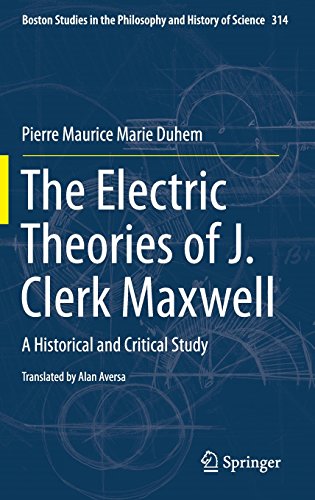

Most ebook files are in PDF format, so you can easily read them using various software such as Foxit Reader or directly on the Google Chrome browser.
Some ebook files are released by publishers in other formats such as .awz, .mobi, .epub, .fb2, etc. You may need to install specific software to read these formats on mobile/PC, such as Calibre.
Please read the tutorial at this link: https://ebookbell.com/faq
We offer FREE conversion to the popular formats you request; however, this may take some time. Therefore, right after payment, please email us, and we will try to provide the service as quickly as possible.
For some exceptional file formats or broken links (if any), please refrain from opening any disputes. Instead, email us first, and we will try to assist within a maximum of 6 hours.
EbookBell Team

4.1
30 reviewsIn this volume Pierre Duhem first gives an overview of 19th century electricity and magnetism. Next, he applies his keen historical, philosophical, and physical intuition to critiquing Maxwell’s theories, especially his electromagnetic theory of light and the ad hoc introduction of displacement current, which he considers too much a product of the “esprit de géométrie” than the “esprit de finesse,” as Pascal calls it.
In this book, Duhem is guided by the principle that a theory that offers contradictions, even if the theory is posed by a genius, needs to be analysed and discussed until a clear distinction can be made between the propositions likely to be logically demonstrated and statements that offend logic and which must be transformed or rejected.
Furthermore, Duhem felt, in criticizing such a theory one must guard against narrowness of mind and petty corrections which would make one forget the merit of the inventor; and, more importantly, one must guard against the blind superstition which, for admiration of the author, would hide the serious defects of the work. He is not so great a genius that he surpasses the laws of reason.
Pierre Duhem (1861-1916), chairman of theoretical physics at Bordeaux in 1984-1916, is well-known for his works in the history and philosophy of science.